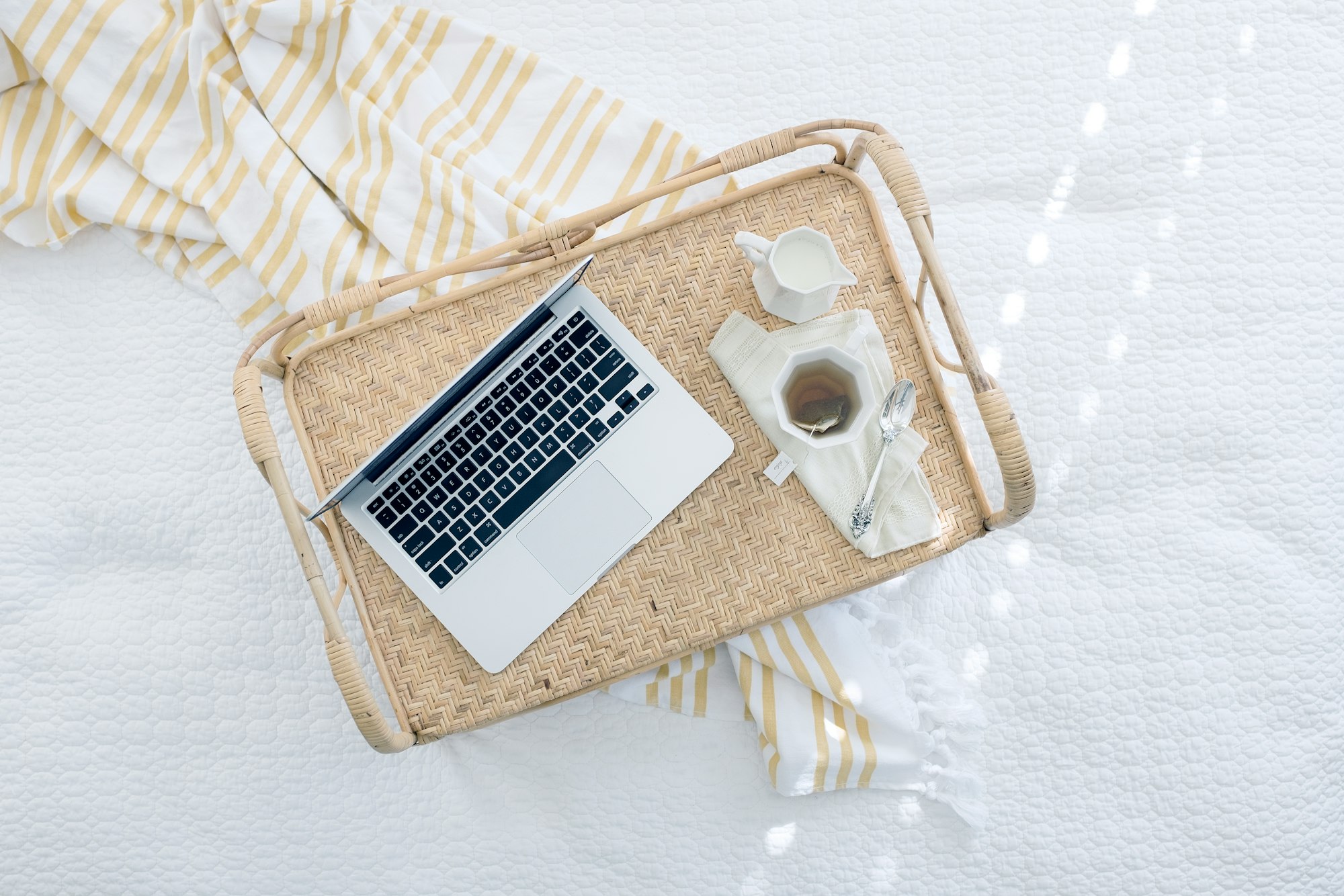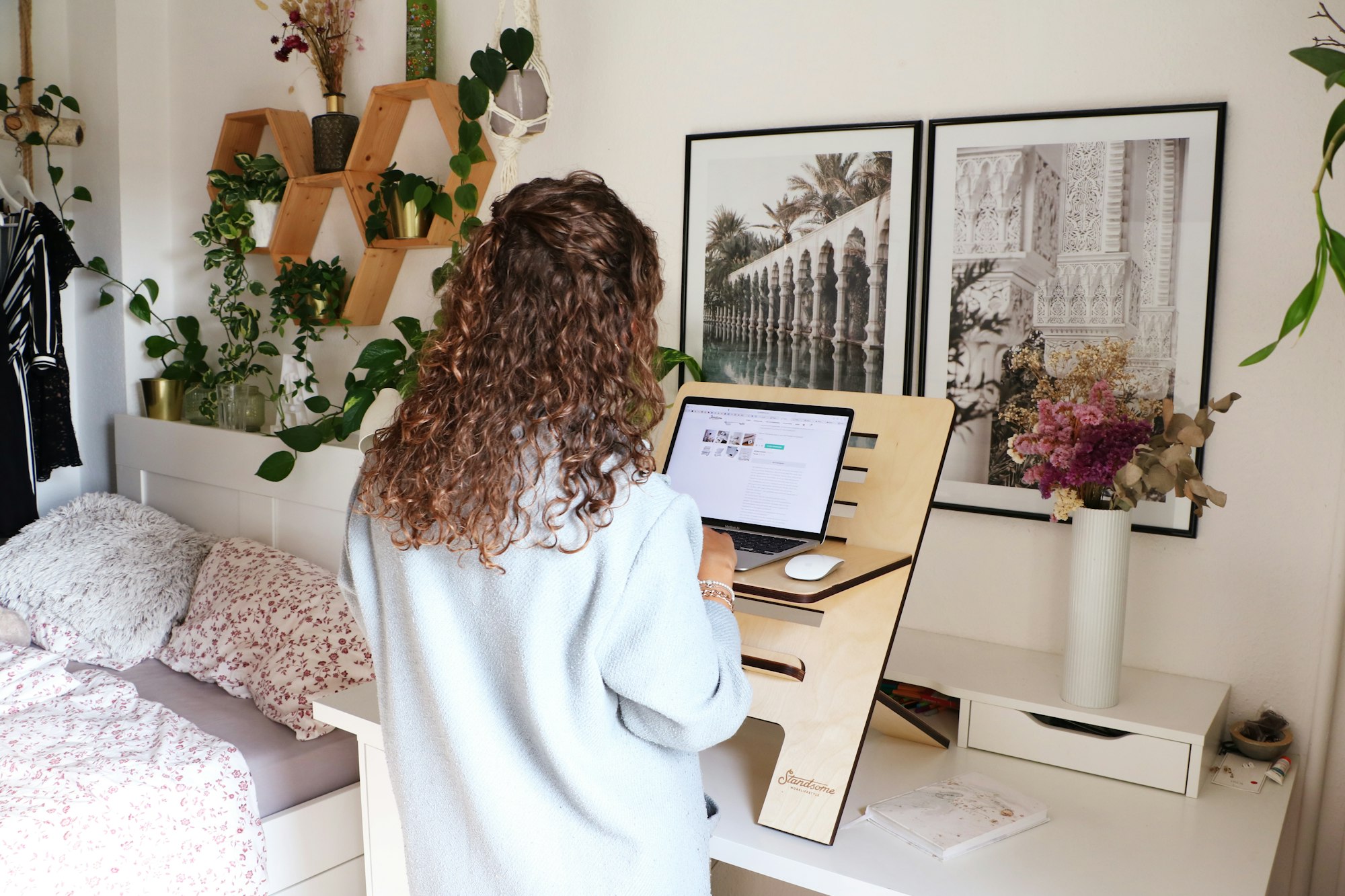Workcation! Prepare ahead to enjoy and stay productive
The COVID-19 pandemic changed our lives. We used to do working holidays for short times. Now, we do it for months, it is called "Workcation". Let's dive into how to prepare ahead for a new life experience.

It goes without saying, the COVID-19 pandemic changed the way we live and work. Until very recent time, we used to travel for a week to attend a 3-day conference. The norm was to split it into two parts between work & leisure, i.e. 3 days for work and 3 days for play. We referred to this as a working holiday.
After being in lockdowns for almost two years, people want to travel and spend a long time overseas but they cannot afford a few months' holidays. A new term has bubbled onto the surface, it is workcation. It refers to people travelling for a long time working remotely and at the same time playing and enjoying a holiday. For example, someone travels to their home country or Bali to work remotely for a few months.
I was fortunate to be at MakerX after the pandemic slowed down which allowed me to try a workcation myself. I went back to my home country, Egypt, for a couple of months to enjoy summer and skip Perth's wild winter. I went to beach resorts, visited extended family, spent time with family, and hung out with school friends, while I was working full-time at MakerX.
I wouldn't say it was a piece of cake to manage it. There were a few challenges like working with a 6-hour time zone difference and getting a comfortable work setup. But the pros outweighed the cons and I would do it again!
During my experience, I have been collecting notes about what went good and what needed more attention. I would love to share that with the wider community to help you have a great workcation.
Setup

If your company is a remote-first company, you will most likely to have a great ergonomic setup. I wish I could pack up all my setup and take it with me, but this is unrealistic. You are going to stay in places that are not perfect for work. You need to think ahead about where you are going to stay and explore options.
- First trick: take what you can carry with you from your home office such as a mouse, keyboard, cables and the most important thing, your headphones.
What about what you cannot carry with you, such as a monitor, desk and chair? Don't underestimate these because you are going to stay at least 8 hours working per day and you are going to stay there for a while. Here are some options:
- The first and easiest option is to plan before booking and make sure to book a place with a proper workstation. Some hotels and serviced apartments have them now.
- The second best option is to find a nearby coworking space/hub where you can rent per day/month.
- The final option is to look into where you are going to stay and buy a cheap brand new or second-hand setup. If it is expensive, explore the option to borrow them from a friend for example. And this is what I did, I borrowed them from my brother.
Internet and access

The internet is the most important part of all your setup. It will be hard to get a landline for your holiday if it is not available where you stay, so mobile data will be your friend. Search for the best providers in the destination country and their offers. My advice to you is to get a mobile plan with enough data for your job. For reference, I consumed around 50-60 GB of data per month during my stay.
If you think you won't have a stable connection, think of backup options in case of any drop.
- First, see if you have internet where you stay. They are usually very limited but may be enough as a backup.
- Second, you can get a plan from another operator for your partner.
- The final option is to get a small internet package from another provider and keep it as a backup with you.
Even after preparing for stable internet access, I was blocked on the first day. on my first attempt to log in to our identity provider from Egypt, I was blocked and contacted our CTO who allowed me access from Egypt. So please make sure before you travel to contact your manager or the IT department in your organisation to have access in the destination country(ies).
VPN, it doesn't sound great to prepare for a VPN but guess what? you will probably need one in your pocket. Some hotels and countries filter content and Australian websites sometimes geo-block traffic from outside, Australia. To be ready, have one ready with you.
Your new schedule

Most likely, there will be a time zone difference between where you stay and your co-workers' time zone. If not, consider yourself very lucky as you can skip the biggest hurdle in this experience.
Now, if you are like me and have a considerable time zone difference, here are my tips and tricks that worked for me.
- Plan when to start and end your day. It depends on whether you are a night owl or an early bird.
- The most important part to consider is to have a good overlap with your colleagues to have meetings and collaborate.
- Make sure you will sleep during the night, do not flip your day by waking up all night and sleeping all day. Because this will destroy your body.
- Think of your weekend, some countries take Friday and Saturday off instead of western ones, i.e. Saturday/Sunday.
- Share with your family and friends your new schedule so they don't book something and put you in an awkward situation to skip a special moment.
- Don’t forget other people working in different time zones as well and whether you have to work with them.
- Make good use of effective asynchronous working patterns and deliberately use cross-over times for things that need to be synchronous.
What works for me might not work for you. Based on my timezone in Egypt back then (GMT+2), my answers to the above questions were to work between 6 am - 2 pm, which meant I worked from 12 pm - 8 pm AWST (GMT+8) where my colleagues were largely based. This allowed 5 hours of overlap each workday. My weekend was Saturday/Sunday against Egypt's weekend (Friday and Saturday) which was a great thing so I managed to finish some government paperwork.
Meetings

After planning your schedule, the next thing is to think about your meetings. There is a standard playbook regarding meetings and here are some of them:
- The most important is to ask your team to reschedule recurring meetings to suit others and yourself (remember to pay attention to others' timezone as well).
- If they cannot reschedule recurring meetings such as standups, you can do it asynchronously, i.e. you post your updates and raise any questions before logging off the previous day and they can read them during their regular time.
- Update your calendar availability for meetings according to your time zone and working time.
- Don’t feel obligated to attend a meeting in the middle of the night, ask for a reschedule or a delegate to attend and debrief you.
- If there is a training session or a workshop, they can record it for you and you can watch it later.
- Update communication applications (i.e. Teams, Slack etc) notifications to meet your new schedule so you don't get notifications in the middle of your sleep or family time.
Types of tasks

Plan your tasks ahead as you might need to work on solo tasks with minimum collaboration with your team. Personally, it was a super productive workcation for me and here is what I did:
- Talk with your team to plan. How long will you be there? your availability? what is your skill set? alignment to delivery timelines?
- Plan for a mix of teamwork and independent tasks so you are not blocked.
- Make sure that you have enough tasks in your queue to work on, so if you finish one earlier, you can jump straight into the next without waiting for someone.
Company culture

Not all companies are the same, there are cultural differences between remote-first vs hybrid model companies. If your company doesn't embrace remote working, you need to plan for a longer conversation. You need to think about these points above and put options to discuss with your team members.
Trust is a cornerstone in workcation. Remote-first companies tend to trust their employees more than others, some might disagree. Try to keep your team and manager informed of your decisions and any changes in your schedule/plan to make sure to build/maintain that trust.
Summary
At last, the most important thing is to watch out for burnout. There are many hurdles to have a great workcation and return fresh. Preparing ahead will make things easier for you to remain productive and enjoy your holiday.
I enjoyed mine and will definitely repeat it.
Happy workcation!

